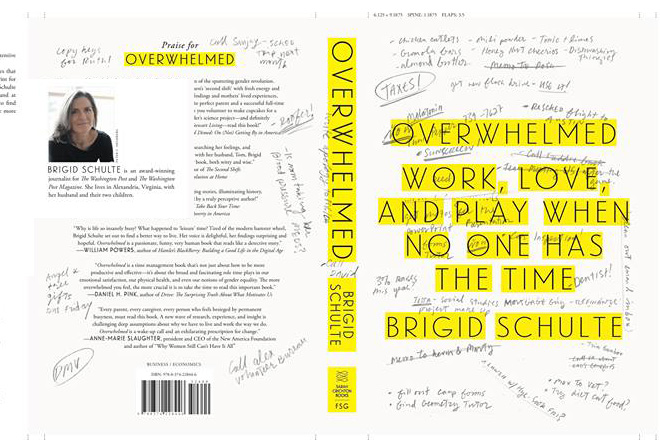Brigid Schulte author of, “Overwhelmed: Work, Love, and Play When No One Has the Time,” writes that Americans have steadily held the same amount of average work hours, if not less, in the last forty years. Sure, there are variances to that general statement, for example which type of job someone has and which industry. We tend to think nowadays we work more hours and have less free time, but that isn’t the case. Schulte speaks of John Robinson, a sociologist at the University of Maryland, research on how time is spent. Robinson say’s we “exaggerate” our work hours to show that we are important. I’ve heard many times the employee who has frequent overtime, is the employee who has poor time management skills. Robinson has also found we sleep more than we think, and watch too much TV. If the time is available then why do we feel so scarce on time?
Surprisingly, the feeling of busyness makes us believe we don’t have the time. We are not lazy but fragment our time, which may not be the best thing to do.
Some excuses for the lack of time are housework and parenthood, but the research has found that not having enough leisure time is just an excuse that means I’d rather do something else. However Robinson does say that the “feeling” of being busy is real. To feel less busy you can do two things;
- Don’t tell yourself you are busy. Keep in mind that busyness doesn’t equal importance.
- Schedule uninterrupted leisure time. Don’t use technology that connects you to work during your leisure time.
The one point Schulte makes that stood out for me is that creativity comes from a mind that is not to the grind stone but at leisure. Schulte says, your brain is wired to be creative in the off time, at those idle moments. Those moments are where you have breakthroughs of creativity.
“Why is life so insanely busy? What happened to ‘leisure’ time? Tired of the modern hamster wheel, Brigid Schulte set out to find a better way to live. Her voice is delightful, her findings surprising and hopeful. Overwhelmed is a passionate, funny, very human book that reads like a detective story.” –William Powers, author of Hamlet’s BlackBerry: Building a Good Life in the Digital Age

